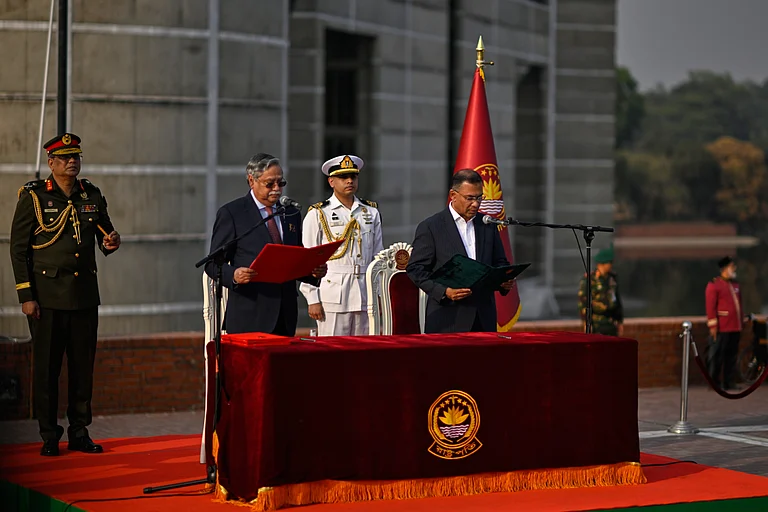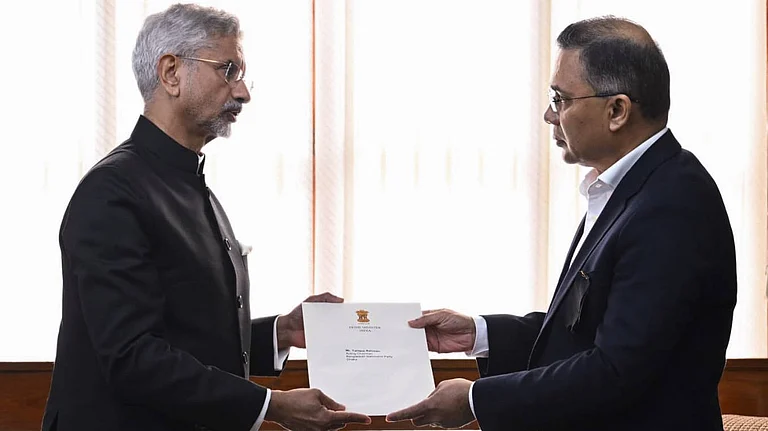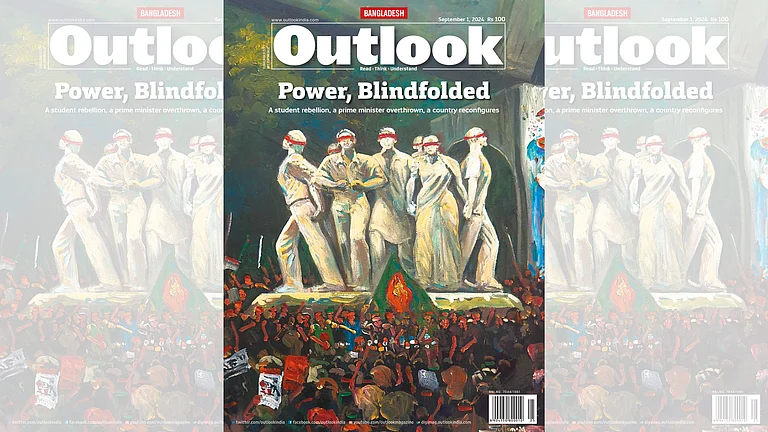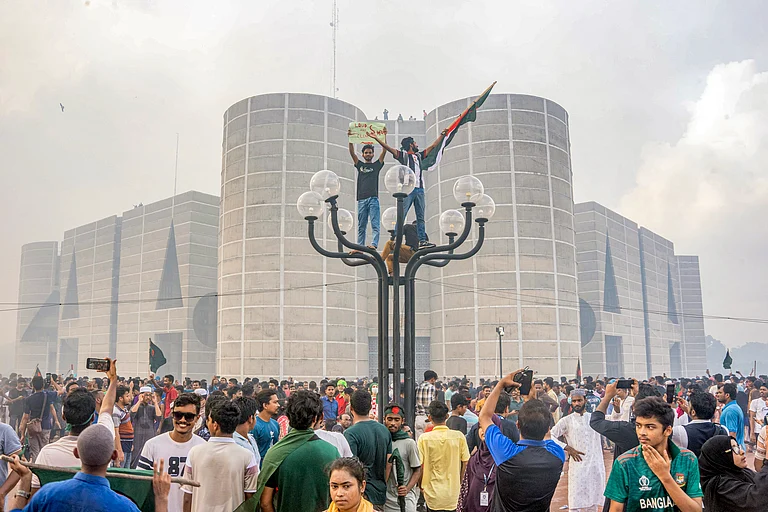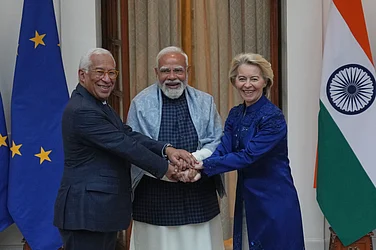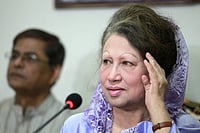Over July and August, Bangladesh witnessed an outburst of people’s suppressed emotions against the misrule and injustice of Sheikh Hasina’s regime. However, there is a history to the anti-quota movement that must be recalled to understand the recent outburst.
The quota-based recruitment system favouring the third generation of freedom fighters embodied systemic discrimination in government jobs. In 2018, students had similarly hit the streets demanding quota reforms. However, Prime Minister Sheikh Hasina abolished the whole quota system. She later publicly admitted that she abolished the system out of anger. When students wanted reforms, she abolished them altogether, intentionally creating grounds for a new conflict.
Now, when the June 5 court order restored it, the students and the common people took it to be a premeditated verdict and came out on the streets.
All informed citizens of Bangladesh understand that during Sheikh Hasina’s regime, the judiciary, like other institutions in the country, functioned under her direct influence. Hasina herself has made several public statements confirming this control. In one press conference, she admitted that while in the Opposition, she had vowed to evict Khaleda Zia from her cantonment residence whenever the opportunity arose. After assuming power in 2009, a controversial High Court ruling indeed facilitated Zia’s eviction from that residence.
There is a long list of Hasina’s comments and other incidents that reflect the unholy nexus between the government and the judiciary. As a result, whenever the courts issued a contentious ruling, the public often believed it was a premeditated verdict, a perception that underscores their lack of trust in the judiciary.
The protests extended beyond mere quota reforms, reflecting nationwide grievances against unprecedented levels of corruption, inflation, unemployment, and money laundering, as well as the erosion of freedom of expression and human rights, and the denial of voting rights over the past 16 years. On July 17, 2024, students rebranded their movement from the Quota Reform Movement to the Anti-Discrimination Movement, and announced new initiatives.
While public outrage mounted amid the escalating crackdown, the demonstrations continued to draw pro-democracy supporters from all segments of society, including teachers, workers, rickshaw pullers, housewives, political activists, and people from diverse professions. As the main opposition, the Bangladesh Nationalist Party (BNP) condemned the authoritarian government’s repressive tactics, expressing solidarity with the protesters. The movement ultimately coalesced into a single demand for Sheikh Hasina’s resignation.
In its attempt to suppress the movement, Hasina’s regime used maximum brute force, resulting in the murder of over 1,000 students and civilians. The authorities also attempted to conceal the violence from international media by shutting down the internet, but these efforts proved futile. On October 5, as over a million students and citizens from across the country marched towards the prime minister’s official residence, the Ganabhaban, Sheikh Hasina fled to India, paving the way for the restoration of fundamental freedoms and rights for all Bangladeshis.
Like every pro-democracy political party in Bangladesh, the BNP morally supported the people’s movement. Our supporters, activists, and leaders participated in the movement to express their solidarity with the students. We mobilised the party, from the highest leadership to the grassroots level, across all institutional levels and geographic regions, making every effort to extend political support through our vast network. The BNP ensured a resolute presence on the ground, passionately strengthening the movement with our organisational capacity.
The interim government, headed by Nobel Laureate Muhammad Yunus, includes several of the nation’s most respected figures. The BNP’s initial assessment of the interim government is positive, and the party is optimistic that they will succeed in restoring peace and stability while fostering an environment conducive to free and fair elections.
In its attempt to suppress the movement, Hasina’s regime used maximum brute force, resulting in the murder of over 1,000 students and civilians.
The BNP expects that the interim government will work to improve the law-and-order situation, protect people from attacks, and bring discipline to the economic sector that has been left in tatters by Sheikh Hasina’s regime. Several police and Rapid Action Battalion officers involved in the indiscriminate killing of students and civilians during the August Uprising have absconded with government-issued weapons. Additionally, Awani League (AL) terrorists had already amassed a significant cache of illegal firearms and sharp weapons. Also, authorities granted firearm licenses, recklessly, to many AL leaders.
After August 5, these weapons were used in incidents of robbery and extortion, and there is evidence linking them to attacks on 32 Hindu temples. Several members of minority communities have publicly alleged that the attackers were AL-affiliated. Given these circumstances, a thorough operation to recover illegal arms is urgently needed. Furthermore, to ensure a fair electoral process, all licensed firearms should be deposited at police stations.
The nation’s economic situation is deeply troubling due to the influence of a few powerful oligarch syndicates. These syndicate members must be swiftly brought to justice to stabilise prices and restore order in the business sector. Additionally, urgent action must be taken to address severe financial crimes such as banking loan scandals, money laundering through over-invoicing, and stock market manipulation.
The BNP will allow the interim government reasonable time to create an environment conducive to free and fair elections. Given the country’s situation, it is challenging to specify any timeframe at this point because essential tasks, such as reconstituting the Election Commission, appointing neutral officials to conduct elections at the grassroots level, and updating the voter list, need to be completed.
The people of Bangladesh have been deprived of their right to elect representatives through free voting for 16 years, leaving them in a state of desperation. We understand that the interim government is aware of this public sentiment.
As I had predicted earlier in an article for Outlook, India’s all-in bet on Hasina has backfired. We have expressed this concern to our friends in India, but unfortunately, they have not paid heed; hence, they kept supporting a brutal and unpopular regime. Now is the time for the people of Bangladesh and India to leave behind the baggage of the past and move forward for mutual economic benefits, thereby forging sustainable and multifaceted people-to-people connections.
China has also misread the minds of the Bangladeshi people. I believe they would realise now. The United States (US)has been vocal about ensuring accountability and human rights in Bangladesh. Still, we have not seen them take any significant steps over the last two months, which is somewhat disappointing to many in Bangladesh. We hope that the US will support our democratic transition.
More than ever, it’s Sheikh Hasina versus Bangladesh—set against the bloody struggle between autocracy and democracy. Although Hasina has resigned and left Bangladesh, much remains to be done to hold her accountable, along with those who masterminded and executed the mass murders of our people. The international community is expected to support the interim government in creating an environment conducive to a fair election in which all active parties can participate and campaign freely.
The people of Bangladesh eagerly anticipate a return to democracy where our lives are safe and secure, and freedoms, of expression and assembly, are protected. We turn to the international community for a smooth democratic transition that reflects the common aspiration to elect a government with a public mandate.
As told to Snigdhendu Bhattacharya
(Views expressed are personal)
MORE FROM THIS ISSUE
AKM Wahiduzzaman is a spokesperson and Information & Technology affairs secretary of the Bangladesh Nationalist Party
(This appeared in the print as 'Seeking Return of Democracy')








